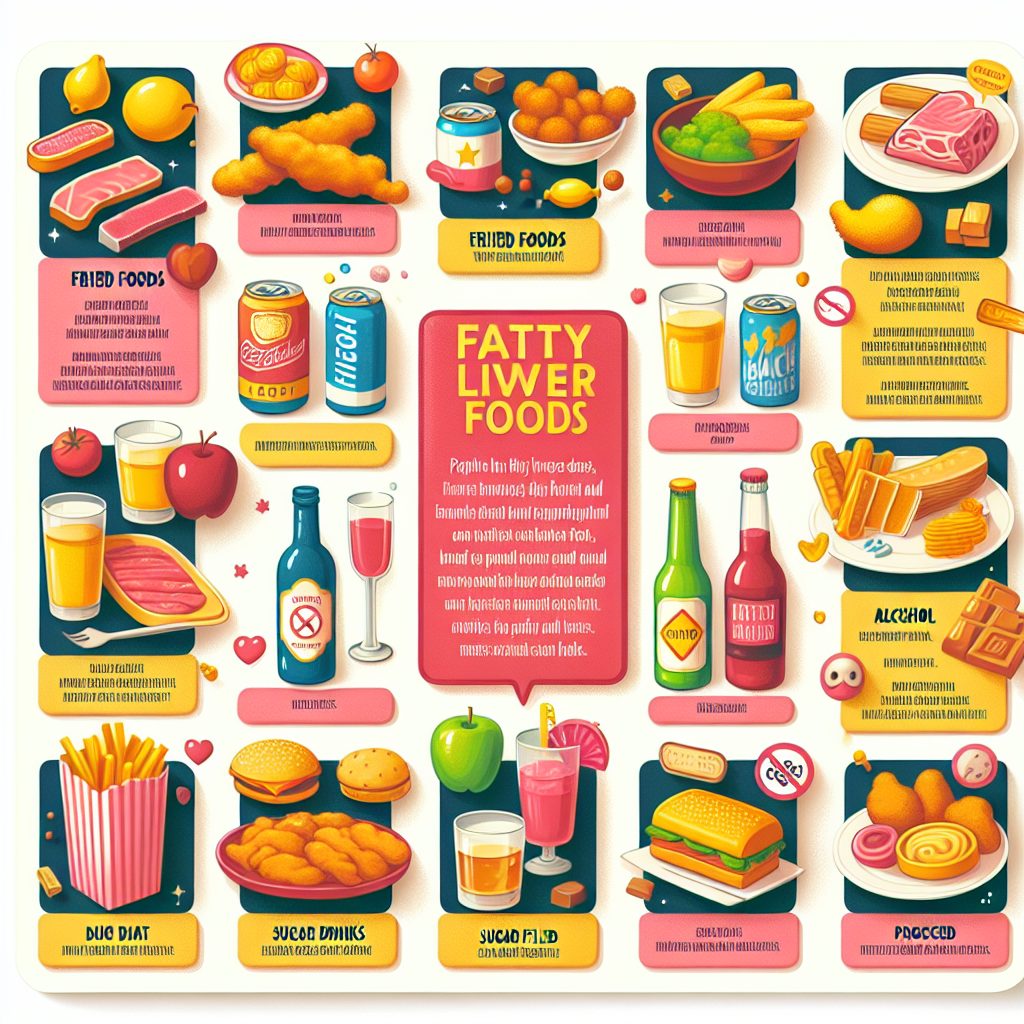Fatty liver disease, also known as hepatic steatosis, is a condition characterized by the accumulation of fat in the liver. It is a common condition that affects millions of people worldwide. While the exact cause of fatty liver disease is not fully understood, it is often associated with obesity, diabetes, high cholesterol, and excessive alcohol consumption. Diet plays a crucial role in managing fatty liver disease, and avoiding certain foods can help improve liver health and prevent further damage. In this article, we will discuss the foods that should be avoided if you have fatty liver disease.
Related Topics (Sponsored Ads):
Read More
One of the primary culprits behind fatty liver disease is excessive sugar consumption. When you consume too much sugar, your liver converts it into fat, which can lead to the accumulation of fat in the liver. Therefore, it is essential to avoid sugary foods and beverages such as soda, candy, pastries, and sweetened juices. Instead, opt for healthier alternatives like fresh fruits, unsweetened beverages, and natural sweeteners like stevia. Processed foods are often high in unhealthy fats, added sugars, and sodium, making them detrimental to liver health. These foods include fast food, frozen meals, packaged snacks, and sugary cereals. They not only contribute to weight gain but also increase the risk of fatty liver disease. Instead, focus on consuming whole, unprocessed foods such as fruits, vegetables, lean proteins, and whole grains. Alcohol is a major contributor to fatty liver disease. When you consume alcohol, your liver prioritizes metabolizing it over other substances, leading to the accumulation of fat in the liver. If you have fatty liver disease, it is crucial to avoid alcohol completely. Even moderate alcohol consumption can worsen the condition and increase the risk of liver damage. Seek support from healthcare professionals or support groups if you need help in quitting alcohol. Saturated and trans fats are unhealthy fats that can contribute to fatty liver disease. These fats are commonly found in red meat, full-fat dairy products, fried foods, and processed snacks. They increase inflammation and insulin resistance, both of which are associated with fatty liver disease. Instead, choose healthier fats such as monounsaturated fats found in olive oil, avocados, and nuts. Excessive salt consumption can lead to fluid retention and increase blood pressure, which can be harmful to the liver. People with fatty liver disease should limit their salt intake and avoid high-sodium foods such as processed meats, canned soups, and salty snacks. Instead, use herbs, spices, and other flavorings to enhance the taste of your meals. While moderate caffeine consumption is generally safe for most people, it may be beneficial to limit caffeine intake if you have fatty liver disease. Some studies suggest that excessive caffeine intake can increase liver enzyme levels and worsen liver health. However, more research is needed to establish a definitive link between caffeine and fatty liver disease. It is best to consult with your healthcare provider to determine the appropriate caffeine intake for your specific condition. Fatty liver disease is a common condition that can be managed through dietary changes. By avoiding foods high in sugar, processed foods, alcohol, saturated and trans fats, excessive salt, and potentially limiting caffeine intake, you can improve liver health and prevent further damage. Instead, focus on consuming a balanced diet rich in fruits, vegetables, lean proteins, whole grains, and healthy fats. Remember to consult with your healthcare provider for personalized advice and guidance on managing fatty liver disease. Related Topics (Sponsored Ads):Sugar and Sugary Foods
Processed Foods
Alcohol
Saturated and Trans Fats
Salt
Caffeine
Summary
Sources



